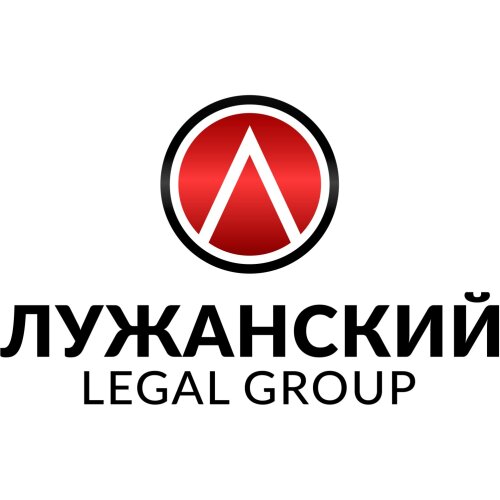Best Public-Private Partnerships (PPP) Lawyers in Kyrgyzstan
Share your needs with us, get contacted by law firms.
Free. Takes 2 min.
Or refine your search by selecting a city:
List of the best lawyers in Kyrgyzstan
About Public-Private Partnerships (PPP) Law in Kyrgyzstan
Public-Private Partnerships (PPP) in Kyrgyzstan refer to a set of legal and organizational forms for cooperation between public authorities and private investors in the development, financing, implementation, and management of projects that pertain to public services or infrastructure. PPP legislation in Kyrgyzstan has been developed to attract private investment into public projects, enhance efficiency, and encourage innovation. The country passed its current PPP Law in 2012, creating the legal foundation for PPP projects and establishing principles for fair risk sharing, transparency, and long-term collaboration.
Why You May Need a Lawyer
Engaging in PPP projects involves complex legal, financial, and regulatory considerations that can be challenging for both public and private entities. Common situations where legal assistance is essential include:
- Drafting and negotiating PPP agreements or contracts
- Understanding government tenders and procurement procedures for PPP projects
- Ensuring compliance with local laws, regulations, permits, and licenses
- Identifying and mitigating risks associated with project finance and guarantees
- Resolving disputes between public authorities and private partners
- Advising on land use, environmental laws, and taxation relevant to PPP projects
- Managing issues related to intellectual property, assets, or revenue sharing
A lawyer’s guidance can protect your interests, reduce risks, and help ensure the success and sustainability of a PPP project.
Local Laws Overview
PPP legal relations in Kyrgyzstan are primarily governed by the Law of the Kyrgyz Republic “On Public-Private Partnership,” alongside related acts such as the Law on Concessions and other regulations tied to specific sectors (health, transport, energy, etc.). Key aspects include:
- Legal Framework: The national PPP law outlines definitions, eligible project types, and principles such as transparency, competition, and public interest prioritization.
- PPP Center: The Center for PPP under the Ministry of Economy acts as the main agency coordinating PPP initiatives, including project appraisal and selection.
- Project Initiation: Projects can be proposed by government agencies or private entities and must undergo feasibility studies, public consultations, and governmental approval.
- Tendering and Procurement: Competitive bidding is standard, with strict requirements for documentation, evaluation, and contract awarding.
- Contracts and Risk Allocation: PPP contracts set out parties’ rights, obligations, performance standards, and mechanisms for risk sharing and dispute resolution.
- Financial and Tax Incentives: PPP projects may benefit from specific tax advantages, state guarantees, or access to government financial support.
- Monitoring and Regulation: Continuous oversight is built into contracts to ensure compliance and safeguard public interests.
Additional legal considerations may arise from land laws, foreign investment rules, environmental regulations, and sector-specific requirements.
Frequently Asked Questions
What is a Public-Private Partnership (PPP)?
A PPP is a formal collaboration between government and private sector entities to finance, construct, operate, or maintain infrastructure or deliver public services.
Who can initiate a PPP project in Kyrgyzstan?
Both public authorities and private investors may initiate a PPP project by submitting proposals to the relevant governmental bodies, subject to required feasibility studies and approvals.
What sectors are most common for PPP projects in Kyrgyzstan?
Sectors include transportation, energy, healthcare, education, water and sanitation, and municipal services.
What are the main steps to launching a PPP project?
Key steps are project identification, assessment and approval, competitive tendering, contract negotiation, and implementation, followed by ongoing monitoring and regulation.
What government agency oversees PPPs in Kyrgyzstan?
The Center for PPP under the Ministry of Economy is the leading agency for PPP policy, project selection, and implementation oversight.
Do foreign investors face restrictions in PPP projects?
Foreign investors may participate in Kyrgyz PPPs, though certain sectors or projects might have additional requirements under sector-specific or investment laws.
How are PPP contracts enforced?
PPP contracts are legally binding and enforceable under Kyrgyz law, with dispute resolution mechanisms typically specified within the contract, including recourse to Kyrgyz courts or arbitration.
What are the risk factors in PPP projects?
Common risks include political or regulatory changes, financial and exchange rate volatility, construction or operational delays, and failure to meet performance criteria.
What incentives are available for PPP projects?
Select PPP initiatives may benefit from tax relief, customs preferences, guarantees, or state co-financing, particularly for projects of national importance.
What happens if a dispute arises during a PPP project?
Disputes are typically resolved as per the dispute resolution clause in the PPP contract, which may involve negotiation, mediation, arbitration, or court litigation under Kyrgyz law.
Additional Resources
If you are seeking information, guidance, or official support on PPP projects in Kyrgyzstan, the following resources can be useful:
- The Center for Public-Private Partnership (PPP Center) under the Ministry of Economy
- The Ministry of Economy and Commerce of the Kyrgyz Republic
- The State Agency for Investment and Export Promotion
- Kyrgyz Chamber of Commerce and Industry
- International organizations focused on PPPs, such as the Asian Development Bank or World Bank country offices
These bodies provide legal guidance, project templates, policy updates, and technical support for PPP stakeholders.
Next Steps
If you are considering launching or participating in a PPP project in Kyrgyzstan, here is how you can proceed:
- Clarify your project objectives, expected outcomes, and sector involvement
- Consult relevant governmental agencies for sector or project-specific requirements
- Seek specialized legal counsel with experience in PPPs under Kyrgyz law
- Prepare or review all necessary documentation, including feasibility studies and project proposals
- Engage in open discussions with all stakeholders to identify and address possible concerns early
- Ensure you understand all risks and compliance requirements before signing a contract
Engaging a qualified lawyer is highly recommended to navigate the complexities of PPP law in Kyrgyzstan, protect your interests, and help achieve positive project outcomes.
Lawzana helps you find the best lawyers and law firms in Kyrgyzstan through a curated and pre-screened list of qualified legal professionals. Our platform offers rankings and detailed profiles of attorneys and law firms, allowing you to compare based on practice areas, including Public-Private Partnerships (PPP), experience, and client feedback.
Each profile includes a description of the firm's areas of practice, client reviews, team members and partners, year of establishment, spoken languages, office locations, contact information, social media presence, and any published articles or resources. Most firms on our platform speak English and are experienced in both local and international legal matters.
Get a quote from top-rated law firms in Kyrgyzstan — quickly, securely, and without unnecessary hassle.
Disclaimer:
The information provided on this page is for general informational purposes only and does not constitute legal advice. While we strive to ensure the accuracy and relevance of the content, legal information may change over time, and interpretations of the law can vary. You should always consult with a qualified legal professional for advice specific to your situation.
We disclaim all liability for actions taken or not taken based on the content of this page. If you believe any information is incorrect or outdated, please contact us, and we will review and update it where appropriate.
Browse public-private partnerships (ppp) law firms by city in Kyrgyzstan
Refine your search by selecting a city.











